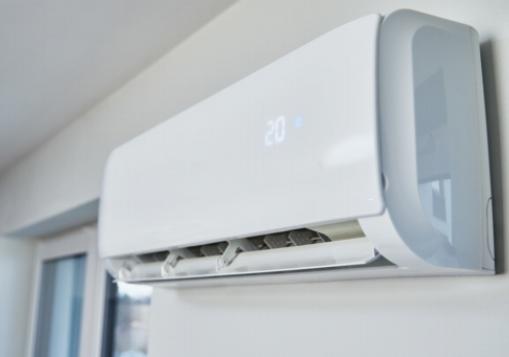A smart thermostat is an essential addition to any modern home, offering a range of benefits that cater to both energy efficiency and cost-savings, as well as optimal comfort and convenience. With its enhanced climate control capabilities, seamless integration with home automation systems, and the ability for remote access and control via mobile devices, the smart thermostat brings a new level of innovation to household climate management. Additionally, its learning features and adaptive scheduling contribute to a more personalized and efficient experience, while maintenance alerts ensure the improved longevity of HVAC systems.

Energy Efficiency and Cost Savings
Upgrading to a smart thermostat is essential for modern homes for several reasons. One of the most significant benefits is the improvement in energy efficiency and cost savings. By utilizing advanced technology and features such as adaptive scheduling and remote access, smart thermostats can effectively regulate the temperature in the home to optimize energy usage. This ultimately leads to reduced energy consumption and lower utility bills, providing homeowners with significant cost savings over time. Additionally, the ability to monitor and control the thermostat remotely allows for greater control over energy usage, ensuring that the home is not unnecessarily heated or cooled when it is unoccupied. Overall, the energy efficiency and cost savings associated with smart thermostats make them a valuable investment for any modern home.
Optimal Comfort and Convenience
One of the key benefits of upgrading to a smart thermostat is the ability to achieve optimal comfort and convenience within the modern home. Smart thermostats allow for precise temperature control, helping homeowners maintain a comfortable living environment throughout the day. With advanced features such as geofencing and occupancy detection, smart thermostats can automatically adjust temperature settings based on whether anyone is present in the home, ensuring maximum comfort while also optimizing energy usage. Additionally, the ability to remotely access and control the thermostat via mobile devices provides unparalleled convenience, allowing homeowners to easily adjust temperature settings from anywhere, at any time. Overall, the optimal comfort and convenience provided by smart thermostats make them an essential addition to any modern home.
Enhanced Climate Control with Zoning Capabilities
One of the key advantages of upgrading to a smart thermostat is the ability to have enhanced climate control through zoning capabilities. With a smart thermostat, homeowners can divide their homes into different zones and set individual temperature preferences for each zone. This allows for a more customized and comfortable living environment, as different areas of the home can be kept at their optimal temperature levels. Additionally, zoning capabilities can help to reduce energy waste by only heating or cooling areas of the home that are in use, leading to increased energy efficiency and cost savings. Overall, the enhanced climate control provided by zoning capabilities with a smart thermostat contributes to a more comfortable and sustainable living space for modern homeowners.
Seamless Integration with Home Automation Systems
The seamless integration with home automation systems is a key feature of smart thermostats that sets them apart from traditional thermostats. By connecting to a home automation system, smart thermostats can work in tandem with other smart devices in the home to create a fully integrated and interconnected environment. This allows for a more streamlined and cohesive approach to controlling various aspects of the home, such as lighting, security, and entertainment systems. With this level of integration, homeowners can enjoy the convenience of managing all their smart devices from a single platform, creating a truly smart and efficient modern home.
Remote Access and Control via Mobile Devices
In today's fast-paced world, remote access and control via mobile devices have become essential for modern homes. Smart thermostats allow homeowners to adjust the temperature of their homes from anywhere, at any time, using their smartphones or tablets. This level of convenience not only enhances the overall comfort of the home but also allows for greater energy efficiency and cost savings. With remote access, homeowners can ensure that their homes are always at the optimal temperature, whether they are at work, on vacation, or simply running errands. This level of control not only provides peace of mind but also allows for a more efficient use of energy, ultimately saving on utility costs.
Learning Features and Adaptive Scheduling
Smart thermostats are equipped with learning features and adaptive scheduling capabilities that set them apart from traditional thermostats. These devices can learn the household’s preferred temperature settings and adjust the heating and cooling schedule accordingly. This not only ensures optimal comfort but also helps in saving energy and reducing utility bills. The adaptive scheduling feature takes into account the occupants’ daily routines, making sure that the HVAC system operates efficiently and only when needed. This level of automation and intelligence makes smart thermostats an essential upgrade for modern homes, offering a seamless and hassle-free way to manage indoor climate control.
Maintenance Alerts and Improved Longevity of HVAC Systems
One of the key benefits of upgrading to a smart thermostat in a modern home is the ability to receive maintenance alerts and improve the longevity of the HVAC system. Traditional thermostats do not offer this feature, which can lead to neglect and oversight in maintaining the HVAC system. With a smart thermostat, homeowners can receive alerts and reminders for important maintenance tasks such as changing air filters, scheduling regular HVAC system check-ups, and addressing any potential issues with the system. By staying on top of these maintenance tasks, the HVAC system can operate more efficiently and effectively, ultimately extending its lifespan and reducing the likelihood of costly repairs or replacements. This added level of proactive care and attention to the HVAC system can result in long-term cost savings and peace of mind for homeowners.
